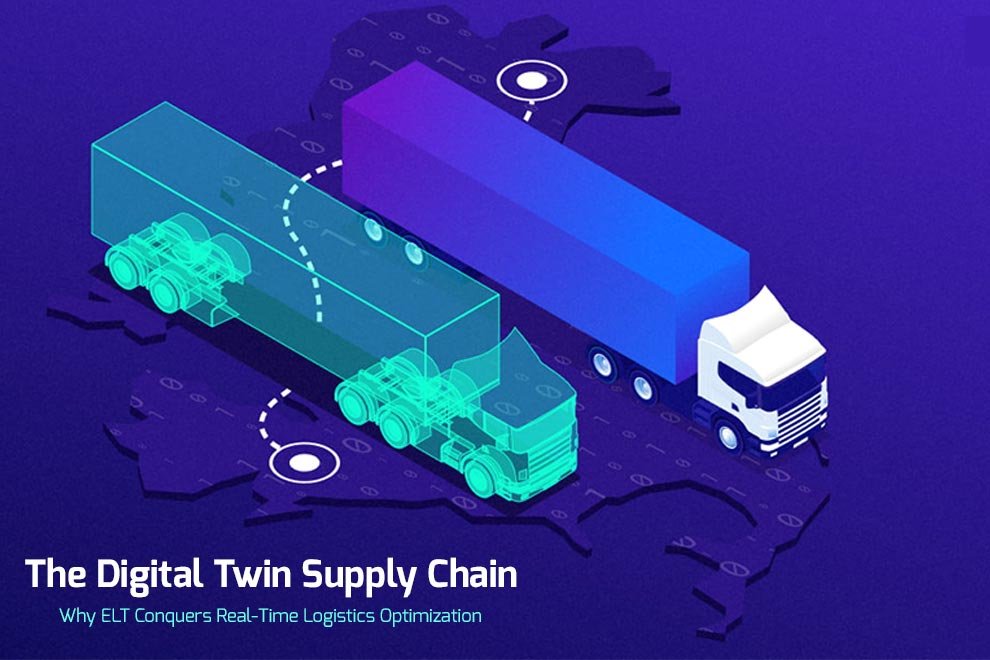Let’s face it—in today’s fast-paced, digital-first world, traditional HR skills alone won’t cut it anymore. Employers are looking for HR professionals who can not only handle the human side of business but also navigate the tech tools that drive efficiency. HRIS certifications—your golden ticket to staying ahead of the curve and positioning yourself as a tech-savvy HR expert.
Whether you’re a seasoned HR professional or a fresh graduate, this guide will act as your personal roadmap to understanding HRIS certifications, picking the right one, and making the most of this career-transforming opportunity. Let’s break it down together!
List of HRIS Certifications
Before diving into the details, here’s a quick rundown of the 11 most recognized HRIS certifications you should consider:
- HRIP Certification
- aPHR (Associate Professional in Human Resources)
- aPHRi (Associate Professional in Human Resources International)
- PHR (Professional in Human Resources)
- PHRca (Professional in Human Resources – California)
- PHRi (Professional in Human Resources International)
- SPHR (Senior Professional in Human Resources)
- SPHRi (Senior Professional in Human Resources International)
- GPHR (Global Professional in Human Resources)
- SHRM-CP (Certified Professional)
- SHRM-SCP (Senior Certified Professional)
Key Differences Between HRIS Certifications
The table below helps you easily compare and identify which certification aligns with your goals, experience, and focus areas:
| Certification Name | Focus Area | Eligibility | Key Topics Covered | Cost | Ideal For |
| HRIP Certification | HR technology and management | 1+ years of HRIS experience | Analytics, data governance, system implementation | $495–$625 | Mid-level HR professionals |
| aPHR | Entry-level HR operations | No experience required | Recruitment, compliance, HR operations | $300 + $100 fees | Students, HR beginners |
| aPHRi | Global HR standards for entry-level roles | No experience required | International HR policies and compliance | $300 + $100 fees | Aspiring global HR practitioners |
| PHR | HR program implementation | 1–2 years of HR experience | Employee relations, business management | $395 + $100 fees | Mid-level HR professionals |
| PHRca | California-specific HR laws | 1–2 years of HR experience | State-specific compliance | $395 + $100 fees | HR professionals in California |
| PHRi | International HR practices | 1–2 years of HR experience | Workforce planning, global HR strategy | $395 + $100 fees | Global HR professionals |
| SPHR | HR leadership and strategy | 4–7 years of HR experience | HR strategy, policy-making | $495 + $100 fees | Senior HR professionals |
| SPHRi | Global HR leadership and strategy | 4–7 years of HR experience | Strategic HR for international businesses | $495 + $100 fees | Senior global HR leaders |
| GPHR | Global HR management | 2–4 years of HR experience | Cross-border HR management, global mobility | $495 + $100 fees | Multinational HR practitioners |
| SHRM-CP | Operational HR practices | HR degree or experience | People management, legal compliance | $375–$475 | Mid-level HR roles |
| SHRM-SCP | Strategic HR leadership | Advanced HR experience | Change management, strategic planning | $375–$475 | Senior HR leaders |
What Exactly Are HRIS Certifications?
HRIS (Human Resources Information System) certifications validate your expertise in using technology to manage HR functions like payroll, recruitment, performance management, and compliance tracking. With HR departments increasingly relying on digital systems, these certifications are becoming a necessity, not a luxury.
Why Should You Care?
- They bridge the gap between traditional HR knowledge and modern technology.
- They’re a powerful way to prove your tech-savvy skills to employers.
- They can lead to higher salaries and more significant career opportunities. (Certified HR specialists earn 31.6% more on average, according to PayScale!)
What Makes HRIS Certifications Unique?
HRIS certifications stand out because they merge technical proficiency with HR expertise. Here’s a quick breakdown:
| Feature | What It Means for You |
| Combines HR & Tech Skills | You’ll gain expertise in tools like Workday, SAP, and Oracle—all highly sought after in HR roles. |
| Future-Proof Career | With 67% of companies planning to invest in HR tech by 2026, your skills will remain in demand. |
| Improves Efficiency & Engagement | 85% of organizations report better efficiency and engagement using HRIS systems (HR Tech Survey 2023). |
Real-World Examples: Why HRIS Certifications Matter
Here’s how HRIS certifications can make a tangible difference:
- Scenario 1: Your company is expanding internationally. As an HR professional with an HRIS certification like SPHRi, you can confidently manage global workforce planning and compliance across different countries.
- Scenario 2: Your HR department struggles with inefficient payroll processing. With a certification like CPP (Certified Payroll Professional), you can automate and streamline the entire process, saving time and reducing errors.
Emerging Trends in HRIS for 2025
HR technology is evolving fast. Knowing these trends can help you choose the most relevant certification:
- AI-Driven Recruitment: Certifications focused on HR analytics (like SAP SuccessFactors) are gaining traction.
- Remote Workforce Management: Tools like Workday HCM are essential for managing remote teams.
- Data Security in HR: Certifications like HRIP emphasize data governance and compliance, which are critical in today’s environment.
- Integration of Blockchain: Advanced certifications now include modules on blockchain for HR, enhancing transparency in hiring and payroll.
How to Choose the Right HRIS Certification
Selecting the perfect certification depends on your career goals, experience, and budget. Here’s a step-by-step guide:
1. Assess Your Career Goals
- For payroll-focused roles: Consider certifications like CPP (Certified Payroll Professional). These provide in-depth knowledge of payroll systems, tax compliance, and reporting standards.
- For global HR roles, Certifications such as PHRi (Professional in Human Resources International) or GPHR (Global Professional in Human Resources) are ideal. These certifications focus on international HR practices, cross-border management, and global mobility strategies.
- For expertise in HR analytics: Look into tools-specific certifications like SAP SuccessFactors. These programs equip you with advanced analytics, workforce planning, and system integration skills.
2. Research Market Demand
Check job postings in your region to see which certifications are most valued by employers.
3. Consider Your Experience Level
| Experience Level | Recommended Certifications |
| Entry-Level | aPHR, Workday Core HCM |
| Mid-Level | PHR, SHRM-CP |
| Senior-Level | SPHR, SHRM-SCP |
4. Budget and Time Commitment
| Certification | Cost | Time to Complete |
| Workday Core HCM | $300 – $500 | 2-3 months |
| SHRM-SCP | $375 – $475 | 3-6 months |
| HRIP | $495 – $625 | 3-6 months |
Top HRIS Certifications in 2025
Here’s a curated list of the best HRIS certifications with key details:
| Certification | Focus Area | Eligibility | Cost |
| HRIP | HR technology and management | 1+ years of HRIS experience | $495 – $625 |
| aPHR | Entry-level HR operations | No experience required | $400 (total) |
| PHR | Mid-level HR expertise | 1-2 years of HR experience | $495 |
| SPHR | Strategic HR leadership | 4-7 years of HR experience | $595 |
| SAP SuccessFactors | HR analytics and cloud solutions | No prior experience needed | $300 – $800 |
Tips to Prepare for Your HRIS Certification Exam
Here’s how you can ace your exam:
- Understand the Exam Structure: Familiarize yourself with the syllabus and question format.
- Leverage Official Study Materials: Use prep courses, eBooks, and sample questions from the certification provider.
- Practice Mock Tests: Online practice tests help improve your time management and confidence.
- Join Study Groups: Collaborate with peers to share insights and resources.
- Create a Study Schedule: Consistency is key. Dedicate time daily to cover all topics thoroughly.
Emerging Trends in HR Tech for 2025
As we move into 2025, HRIS certifications will become even more important. Here are key trends shaping HR tech:
- Artificial Intelligence & Automation
AI is becoming a big part of HR tasks. In fact, 65% of HR professionals already use AI to automate daily tasks. HRIS certifications must now include AI content to keep up with this shift.
- Focus on Employee Experience (EX)
Employee engagement is critical. With 77% of workers disengaged, HR tools are needed to improve experiences. Certifications will need to teach how to use tech to personalize HR services.
- Data Analytics for Better Decisions
Executives see data analytics as key for boosting performance and reducing turnover. HRIS certifications will focus on teaching HR professionals how to use data for smart decision-making.
- Faster & Specialized Courses
As HR tech evolves, shorter, skill-based certifications are in demand. Expect certifications to become more specific, offering targeted skills in areas like compliance or analytics.
Global Recognition
Global HRIS certifications are in demand. Companies want certifications that meet international standards to handle cross-border HR needs.
Continuous Learning
HR professionals believe in upskilling. 87% agree that continuous learning is vital for career growth. HRIS certifications will require renewals with ongoing education credits.
Final Thoughts: Your Next Steps
Getting HRIS certified is more than just adding a credential to your resume; it’s about becoming a future-ready HR professional. Take the time to assess your goals, choose a certification that aligns with your aspirations, and start preparing today. Remember, this is your career—invest in it wisely!
Are you ready to unlock new opportunities in your HR journey? Start by choosing the right certification, and let it pave the way to a brighter, tech-savvy future in HR!
FAQs
- Which HRIS certification is the best for beginners?
For beginners, certifications like the “SHRM HRIS Specialist Certificate” or the “Workday Core HR Certification” are great options. These programs cover foundational HRIS knowledge and help you build a strong career in HR technology.
- How do HRIS certifications benefit your career?
HRIS certifications improve your career by making you skilled in managing HR technologies, which are in high demand. They showcase your skills to employers, increase your job opportunities, and often lead to better pay.
- How long does it take to get an HRIS certification?
The time required depends on the certification program, most HRIS certifications take a few weeks to a few months to complete. Many programs are flexible, allowing you to study at your own pace.
- Are HRIS certifications worth the investment?
Yes, HRIS certifications are worth the investment as they enhance your professional value, improve your HRIS skills, and open doors to better career opportunities. They are especially beneficial for professionals looking to excel in HR and technology.










